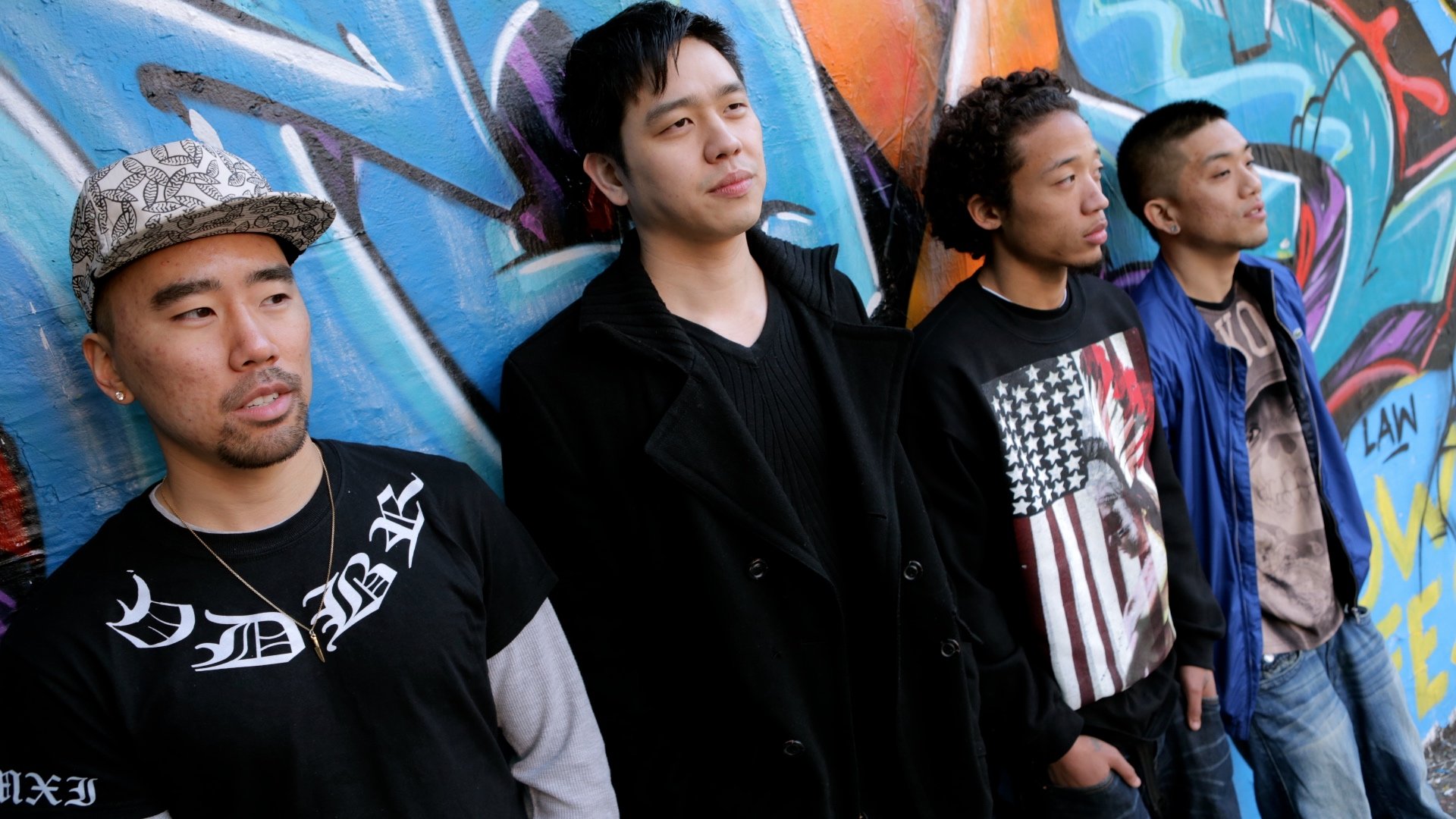A-Town Boyz

A coming-of-age story about young Asian-American men in Atlanta who blaze through America’s deviant subcultures, trying to find themselves ten thousand miles from home.
Film Synopsis
This edgy documentary is an illuminating time capsule of the immigrant struggle juxtaposed with cultural trends and socio-economic needs. With unprecedented access, the filmmakers follows the journey of gang leader Eugene Chung, aspiring hip hop artists Harrison “Vickz” Kim and Jamy “Bizzy” Long as they navigate their destiny in the margins of society to find their dreams.
Above all, A-Town Boyz gives a vérité look at the vulnerability of immigrant families in America. It unveils the quiet suffering and untold hardships of a growing number who live beneath the poverty line. Unlike the mainstream media's portrayal of Asian Americans as the “model minority,” many Asians like them are bullied in school and neglected by immigrant parents who struggle to make ends meet. As a result, their children face social, cultural and linguistic barriers that make assimilation difficult. Caught between two cultures, they often feel alienated and turn to gangs for kinship, material gain and identity. Filmed over ten years, A-Town Boyz demonstrates the true story behind the “model minority” myth and what it means to be American.
Director I Eunice Lau Editor I Yasu Inoue
Why this story
In Atlanta, where the most prevalent demographic is split into two—black or white—the Asian Americans often times fall through the cracks. There aren’t many documented Asian-American stories that come from the South, or even in general. Asian-American males are a neglected group in our society, and we want to tell their stories.
The subjects of our documentary have a diverse background but share some similarities: raised by immigrant parents who worked long hours (parental neglect at home) and lacked the knowledge to navigate the educational systems due to the language barrier (extra pressure on the children to figure things out alone at a very young age), and struggled with racism in their schools where Asian Americans were taunted for their looks, language, and culture. Through them, we captured stories of parental sacrifices, racism during childhood and adolescence, and what work is being done today for progress—all in the great city where American civil rights activist Dr. Martin Luther King, Jr. was born. As a team of mostly Asian American filmmakers, this is a story that resonates deeply. It is a story of us, still on a journey to find ourselves.
Asian American hip-hop artists of Atlanta
Gang leader Eugene Chung with his crew
Between work and creating music, Harrison “Vickz” Kim spends time with his kids
“Featuring the often-ignored lives of Asian American gang members and their families in Atlanta, the documentary foregrounds a common struggle of immigrant life: finding a way into power structures and social networks that do not readily, if ever, open up to outsiders. A-Town Boyz is a timely reminder that across the United States, the “model minority” stereotype commonly used to understand Asian Americans is badly in need of a reality check. - Quartz
Progress and Support
In order to show the advances that educators and social workers of Atlanta are making, we’re documenting the younger generation of Asian Americans in Atlanta who come from immigrant and/or single mother households of low-income neighborhoods. One of these organizations is the Center for Pan Asian Community Center (CPACS) where staff members work with children and adults alike, including Asian and Hispanic families as well as with Burmese and Bhutanese refugees. Part of the great work that they do is provide counseling to children who have been touched by gang activity in some way, and advising immigrant parents on how to navigate the American systems for their children’s future. The nurturing aspect of CPACS is that the people who go there feel heard and that alone goes such a long way.
Vickz’s partner Joanne with their daughter Ayla
Vickz and Joanne help his father prepare Christmas lunch
Audience
There are over 18.2 million Asians living in the US today, of which about 4 million are under the age of 18. Yet rarely do they see themselves depicted in mainstream media in all their complexity and diversity. According to a survey conducted by the Bullying Prevention Summit, Asian American youths are the most bullied among all racial groups in the US with a startling high of 54% (White, African-American and Hispanic groups show a range between low to high percentages in the 30s). Since we started the project, we have received an outpouring of support from young Asian Americans on our social media with comments, messages and questions from an eager audience that is thanking us for making a film that tells their stories. Our Facebook page already has over 1,000 “likes” and our YouTube has over 6,000 hits. Personal stories about bullying, emasculation and identity confusion have been shared on our Facebook and Twitter by followers including AAPI interest groups, organizations and media (e.g. Angry Asian Man, Hyphen Magazine, 18 Million Rising, etc.). We believe this film will start a conversation and make a meaningful contribution towards breaking down racial prejudice against Asians in America.
Asian immigrants faced contadictory experiences of discrimination and opportunity the U.S. and were denied naturalization rights until 1952. But the struggle for equity and justice continues today. Photos courtesy of: Museum of Chinese in America and Thomas K. Pendergast
The Team
Eunice Lau
Director and Producer
Director’s statement:
This story came to me when I was pursuing my MFA in filmmaking at New York University, where I met Korean-American actress Grace Kim and learnt about her story growing up in Atlanta. Through her, I gained the access to tell this story. What began as an interest in capturing the deviant, cool lifestyle of Asian hip-hop artists and street life, became a story of identity, acculturation and overcoming the trauma of being descendants of immigrants displaced by conflict. In the process of fundraising and production, the film won a grant from Spike Lee, my professor and artistic director of NYU’s Graduate Film Program. It received unprecedented press coverage from domestic and international media - such as NBC, Quartz, The Economist, Korean Daily, NPR-affliate WABE - way before the film’s completion. The buzz generated over it speaks volume of how the story is capturing not just the zeitgeist of Asian American youths, but a real hunger for such overlooked and untold stories of our community. I am humbled to be entrusted with this story that resonates with million of hyphenated identities like us. A story that has to be told, even if it does not have a fairytale ending, because the truth of the continuous struggle defines the courage of humanity more than the tangibles . As Spike Lee tells each of his graduating class, “Go forth, and ‘Do The Right Thing’.” I hope I have, with the stories we tell.
“She said nobody had ever asked her, ‘How have you suffered?’ and all of us behind the camera were holding back our tears because her story resonates with us...It was the story of our parents, what they went through to put food on the table, working 14, 16, 20 hours a day and us growing up without them very much present in our lives because they had to work so hard.”
Grace Jung
Producer
Grace Jung is a stand-up comedian, writer and filmmaker based in Los Angeles. She is the author of Deli Ideology and hosts K-Drama School podcast. Grace’s documentary J&S Auto is an official selection at the Maryland Film Festival, Brooklyn Film Festival, and the Houston Asian American Pacific Islander Film Festival. She wrote the animated film Billo which won the National Board of Review of Motion Pictures award in 2009. Grace has a PhD in Cinema and Media Studies from the UCLA School of Theater, Film and Television.
“We’re filming Asian-American men who are coming of age, children to parents who admit to mistakes that came with their sacrifices, former and current gang members, and students who are looking ahead at their own future, uncertain of what’s to come…and raise important questions on what we can do to make sure that the children and parents of immigrant Americans today make progress. The stories that our subjects tell are unique. They show us another kind of life and the wounds that led to it.”














